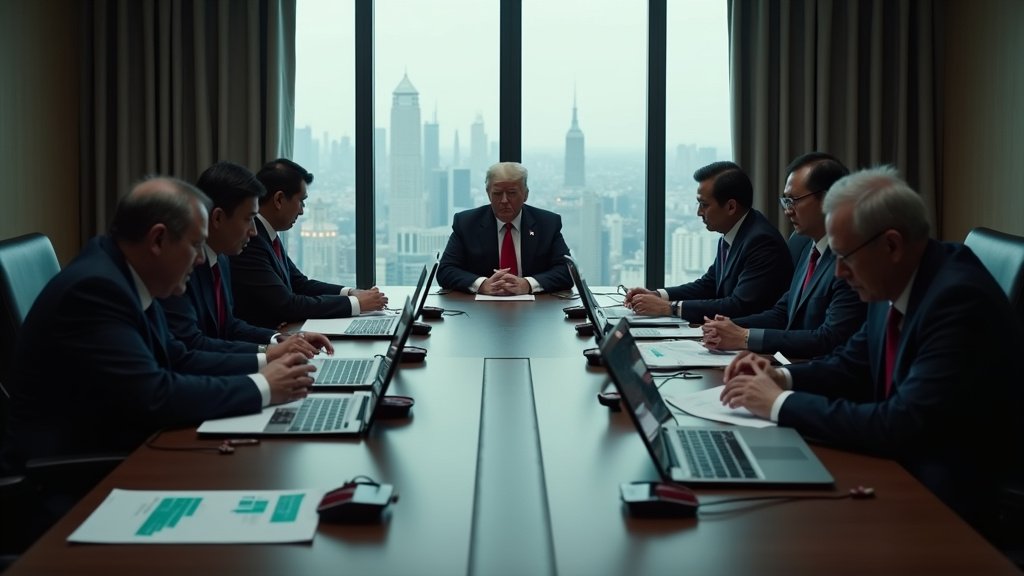Washington D.C. – This past week in American politics has been dominated by a confluence of significant developments, from high-stakes diplomatic maneuvering on the international stage to crucial economic signals from the Federal Reserve and intensifying partisan warfare over electoral maps.
Diplomatic Maneuvers: Trump, Putin, and the Elusive Ukraine Peace
President Donald Trump has continued to be a central figure in efforts to broker peace between Russia and Ukraine. Reports indicate that a potential summit involving Trump, Ukrainian President Volodymyr Zelenskyy, and Russian President Vladimir Putin is being considered, with Budapest emerging as a possible, albeit unconfirmed, venue. While Trump has expressed optimism, his stance has wavered, oscillating between a desire for swift resolution and frustration with the lack of progress. He has signaled a willingness to impose “massive sanctions or massive tariffs or both” if no headway is made, but also mused about the possibility of “doing nothing.” The US has presented proposals for a peace agreement, and direct talks between Ukrainian and Russian officials have occurred, though significant breakthroughs remain elusive. Russia, however, has expressed skepticism about the summit’s readiness, with its foreign minister stating, “There is no meeting planned” and that the “agenda is not ready at all.” Meanwhile, European allies are exploring security guarantees for Ukraine, with some expressing readiness to deploy troops, a move Russia deems unacceptable. This diplomatic flurry underscores a broader shift in US foreign policy, with the Trump administration appearing to prioritize warmer relations with Russia, viewing the war itself as an impediment.
Economic Currents: Fed Signals Rate Cuts Amidst Inflation Concerns
In the economic sphere, Federal Reserve Chair Jerome Powell’s speech at the annual Jackson Hole symposium provided a significant signal that interest rate cuts are likely on the horizon, potentially as early as September. Powell cited concerns over a weakening job market and slowing economic growth as reasons for this potential shift, even as he acknowledged that tariffs could exert upward pressure on inflation. Market participants reacted positively, with futures markets pricing in a high probability of a rate cut, leading to a rally in stock markets. Despite consistent pressure from President Trump for lower rates, Powell reiterated the Fed’s commitment to making decisions based on economic data, emphasizing that monetary policy is “not on a preset course.” The central bank is closely monitoring inflation, which remains above its 2% target, and assessing the lingering effects of tariffs on consumer prices.
The Redistricting Chess Match: Texas vs. California
A fierce partisan battle over congressional district maps is unfolding, with Texas and California at its epicenter. At the urging of President Trump, Texas Republicans have pushed through a new congressional map designed to secure five additional GOP seats, a move described as unusual mid-decade redistricting. In a retaliatory move, California Governor Gavin Newsom signed a plan to redraw the state’s congressional boundaries, aiming to create five new Democratic-held seats. This tit-for-tat strategy between the nation’s two most populous states is seen as a critical effort by both parties to shape the composition of the House of Representatives for the upcoming midterm elections, potentially disrupting a delicate partisan balance. While California’s plan faces a voter referendum, Republicans in Texas are also contending with legal risks related to the Voting Rights Act for their map-drawing efforts.
Conclusion
This week’s political landscape highlights a dynamic period where foreign policy, economic strategy, and the very architecture of electoral representation are being vigorously contested. President Trump’s assertive role in peace talks and economic policy, coupled with the high-stakes redistricting battles, underscores the intense partisan environment as American Politics navigates critical domestic and international challenges.












